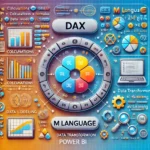In the realm of big data processing, performance is a key metric that organizations prioritize when choosing their analytics engine. Two giants in this space, BigQuery and Apache Spark, have garnered attention for their capabilities, but the question persists: Is BigQuery faster than Spark? In this comprehensive exploration, we’ll delve into the intricacies of both platforms, examining their strengths, weaknesses, and real-world performance. By the end of this guide, you’ll have a nuanced understanding of when to harness the speed of BigQuery and when Apache Spark might be the better choice.
Table of Contents
ToggleUnderstanding BigQuery:
What is BigQuery?
Google BigQuery is a fully-managed, serverless data warehouse that enables super-fast SQL queries using the processing power of Google’s infrastructure. BigQuery is renowned for its scalability and ease of use, making it a popular choice for organizations leveraging the cloud for their data analytics needs.
Key Features of BigQuery:
- Serverless Architecture: BigQuery’s serverless nature eliminates the need for infrastructure management, allowing users to focus solely on querying and analyzing data.
- Automatic Scaling: BigQuery dynamically adjusts resources based on query complexity and data volume, ensuring optimal performance.
- Integration with Google Cloud: Seamless integration with other Google Cloud services and tools for comprehensive data analytics workflows.
Understanding Apache Spark:
What is Apache Spark? Apache Spark is an open-source, distributed computing system that provides a fast and general-purpose cluster-computing framework for big data processing. It’s designed to be fast and flexible, offering a range of APIs for various programming languages.
Key Features of Apache Spark:
- In-Memory Processing: Spark’s in-memory processing capability speeds up iterative algorithms and interactive data analysis.
- Versatility: Supports various languages (Java, Scala, Python, R) and offers libraries for machine learning (MLlib) and graph processing (GraphX).
- Spark Ecosystem: A rich ecosystem of libraries and tools, including Spark SQL, Spark Streaming, and Spark MLlib, for diverse data processing needs.
Is BigQuery Faster Than Spark?
Factors Influencing Performance:
- Data Size: For small to medium-sized datasets, BigQuery’s serverless architecture and automatic scaling often lead to faster query execution.
- Complexity of Queries: BigQuery excels in handling complex, ad-hoc queries, while Spark’s in-memory processing may offer advantages for iterative algorithms and machine learning tasks.
- Infrastructure Management: BigQuery’s serverless model simplifies infrastructure management, potentially reducing overhead compared to managing a Spark cluster.
Real-World Performance Considerations:
- Query Optimization: Both BigQuery and Spark allow for query optimization, and the efficiency of query design significantly impacts performance.
- Dataset Partitioning: In Spark, proper dataset partitioning can enhance performance, while BigQuery automatically manages partitioning in its storage model.
External Links and Resources:
- Google BigQuery Documentation
- Apache Spark Documentation
- BigQuery vs. Spark: Choosing the Right Tool
Frequently Asked Questions (FAQs):
Q1: Can I use both BigQuery and Spark in the same data analytics pipeline?
A1: Yes, organizations often use BigQuery for fast SQL queries and Spark for more complex data processing tasks within the same analytics workflow.
Q2: What are the cost implications of using BigQuery vs. Spark?
A2: Cost considerations depend on factors like data volume, query complexity, and infrastructure management. Both platforms offer transparent pricing models.
Q3: How does the serverless nature of BigQuery impact performance?
A3: BigQuery’s serverless architecture simplifies infrastructure management, potentially leading to faster time-to-insight as users can focus solely on querying.
Q4: Are there use cases where Spark’s in-memory processing is advantageous over BigQuery?
A4: Yes, Spark’s in-memory processing is advantageous for iterative algorithms, machine learning, and scenarios where fine-tuned control over the computing environment is required.
Deep Dive into Performance Benchmarks:
Use Case 1: Large-Scale SQL Queries in BigQuery
-- Example BigQuery SQL query for large-scale data
SELECT
column1,
COUNT(*)
FROM
your_dataset.your_table
GROUP BY
column1;
Use Case 2: Iterative Machine Learning in Spark
# Example Spark code for iterative machine learning
from pyspark.ml import Pipeline
from pyspark.ml.classification import LogisticRegression
# Your Spark MLlib code here
Conclusion: Leveraging Speed for Optimal Performance
In conclusion, the question of whether BigQuery is faster than Spark is nuanced and depends on various factors. BigQuery excels in scenarios where serverless, scalable SQL queries are paramount, while Spark’s in-memory processing and versatility make it a go-to choice for complex data processing tasks. Organizations often find success in leveraging both platforms within the same analytics pipeline for optimal performance across diverse use cases. By understanding their features, real-world performance considerations, and exploring external resources, you can make informed decisions to harness the speed required for your specific data analytics needs.






